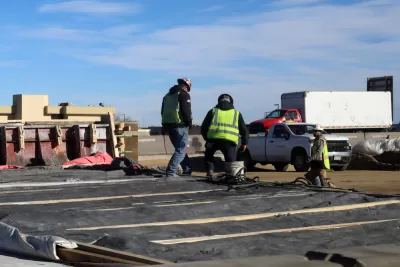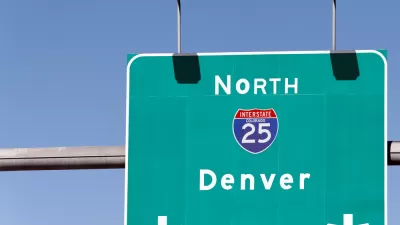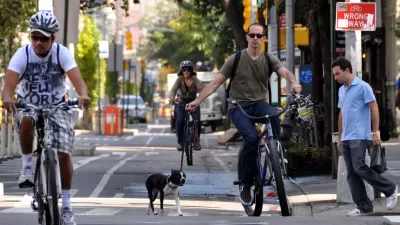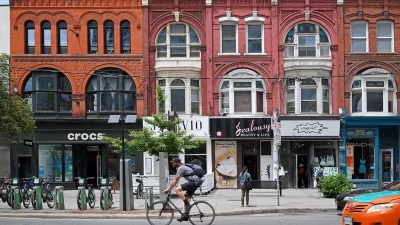The Colorado Department of Transportation might be building fewer roads than they had originally planned after the coronavirus recedes. A few projects already underway have been able to speed up.

"Big highway projects along the Front Range have taken advantage of the unprecedented weeks-long lull in traffic set off by the coronavirus pandemic by speeding up some work," reports Jon Murray.
The lack of automobile traffic in Colorado has accelerated construction on the Central 70 project in northeast Denver and the I-25 South Gap project, among others, reports Murray, but the numerous other projects are at-risk of losing necessary funds as drivers stay off the roads and leave gas tax revenues on empty in the state.
Colorado Department of Transportation Executive Director Shoshana Lew presented a preview of budgetary challenges to come for road projects in the state at a recent meeting of the Colorado Transportation Commission.
"Suddenly at risk are big-ticket projects on Interstate 70 in the mountains, including a notorious bottleneck at Floyd Hill, as well as widening work along sections of Interstate 25 along the Front Range and an overhaul of Interstate 270 in metro Denver," writes Murray to explain the at-risk projects.
Lew described a total of $250 million in projected hits to Colorado's planned projects over the next three years—just a few months removed from the Colorado Transportation Commission's November 2019 approval of a $1.6 billion project list for CDOT, described by Murray as "the most substantial funded road plan in years."
Concern about road and highway construction funding has already been expressed in Missouri, as well.
FULL STORY: Construction speeds up on I-70 and I-25, but other Colorado projects may be doomed by coronavirus

Maui's Vacation Rental Debate Turns Ugly
Verbal attacks, misinformation campaigns and fistfights plague a high-stakes debate to convert thousands of vacation rentals into long-term housing.

Planetizen Federal Action Tracker
A weekly monitor of how Trump’s orders and actions are impacting planners and planning in America.

In Urban Planning, AI Prompting Could be the New Design Thinking
Creativity has long been key to great urban design. What if we see AI as our new creative partner?

California Creates Housing-Focused Agency
Previously, the state’s housing and homelessness programs fell under a grabbag department that also regulates the alcohol industry, car mechanics, and horse racing.

Chicago’s Ghost Rails
Just beneath the surface of the modern city lie the remnants of its expansive early 20th-century streetcar system.

Baker Creek Pavilion: Blending Nature and Architecture in Knoxville
Knoxville’s urban wilderness planning initiative unveils the "Baker Creek Pavilion" to increase the city's access to green spaces.
Urban Design for Planners 1: Software Tools
This six-course series explores essential urban design concepts using open source software and equips planners with the tools they need to participate fully in the urban design process.
Planning for Universal Design
Learn the tools for implementing Universal Design in planning regulations.
planning NEXT
Appalachian Highlands Housing Partners
Mpact (founded as Rail~Volution)
City of Camden Redevelopment Agency
City of Astoria
City of Portland
City of Laramie





























